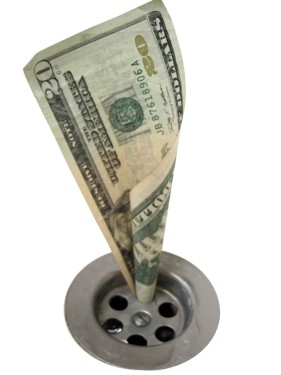Stop Your Children Spending Money on Apps on Your iPad
In the hands of a youngster, spending money on iPhone and iPad apps could run up a debt of thousands. Following greater news coverage, Jp sets out how you can protect yourself using the 'Restrictions' settings.
Despite the Apple iPad being a precision engineered, complex and most of all, premium device; more and more of them are being put into the hands of children.
I haven’t got children, so this fills me with horror. Perhaps its one of those battles parents are doomed to lose, or perhaps it’s an easy upgrade if the old one can be simply given to the kids!
Regardless, this hasn’t gone unnoticed by App Developers and there are now hundreds and hundreds of games available for download via the App Store aimed at children of all ages.
The big growth area has been games which are ‘Free to Play’. These are games that have no upfront cost and are listed in the app store as ‘Free’. However, the word 'free' is arguably not accurate as there are such things as ‘in-app purchases’. The idea is that once you’re into the game, you can purchase bigger guns, more coins or whatever to enhance your enjoyment or achieve more. As this method of selling games has evolved, there has been a slightly unexpected consequence for the odd unlucky parent, that their little boy or girl has just run up thousands of pounds of spending, whilst innocently playing iPad games at the kitchen table!
This weekend, the BBC has taken up the story (here) since the problem has become large enough that the Office of Fair Trading (OFT) has gotten involved and will investigate to see if these games are putting undue pressure on children to spend money.
Whilst watching the news, it became apparent that many parents do not realise that it is possible to set up iPads so that children cannot spend the money in the first place, or at least have to come to you for permission. Many people already know that a password is required before downloading from the App Store, but this password can work for more than one purchase (about 15mins after entry) before the prompt would appear again.
Buying products within the games could also circumvent this all together, so you need to apply the following additional settings in your iPad (should also work for the iPhone) in order to be fully protected from credit card bill shock! If you have given your young child their own iPad, it would also be useful to check the additional parental controls that Apple provide, to help protect them from accessing inappropriate content.
On your iPad, tap on Settings then General, found in the left column.
Now on the right column, find and tap Restrictions, which is about halfway down the list.
At the very top right, tap Enable Restrictions and you’re ready to work down the list.
You’ll be asked to set a passcode. This is a 4 digit PIN, which must be entered each time a restricted function is to be bypassed. Keep this PIN private and your child can only have an additional app or spend money when it’s been checked by you and the PIN applied.
The key functions to prevent accidental financial loss are:
Under Allow set Installing Apps to OFF
Under Allowed Content (further down the right column) set In-App Purchases to OFF
Immediately under In-App Purchases tap Require Password and change it from ‘15 Minutes’ to ‘Immediately’ - without this, the iPad does indeed remain open to abuse for a little while. A little extra protection should the restrictions ever get turned off.
Now your credit card can rest easy!
Other useful functions in the list include being able to switch off Facetime (video instant messaging), deletion of Apps, blocking anything flagged as containing explicit language and setting the age ratings for the TV shows and movies available from iTunes that you are happy for your child to see.
So whilst we leave it to the newspapers to go a little overboard with this and blame Apple, the App Developers and anyone else they can think of, once this is set up, the rest of us can get on with our lives and hope the children don’t pester too much for those gold coins, gems and other digital items that don’t exist.
Jp
Photo Credits






